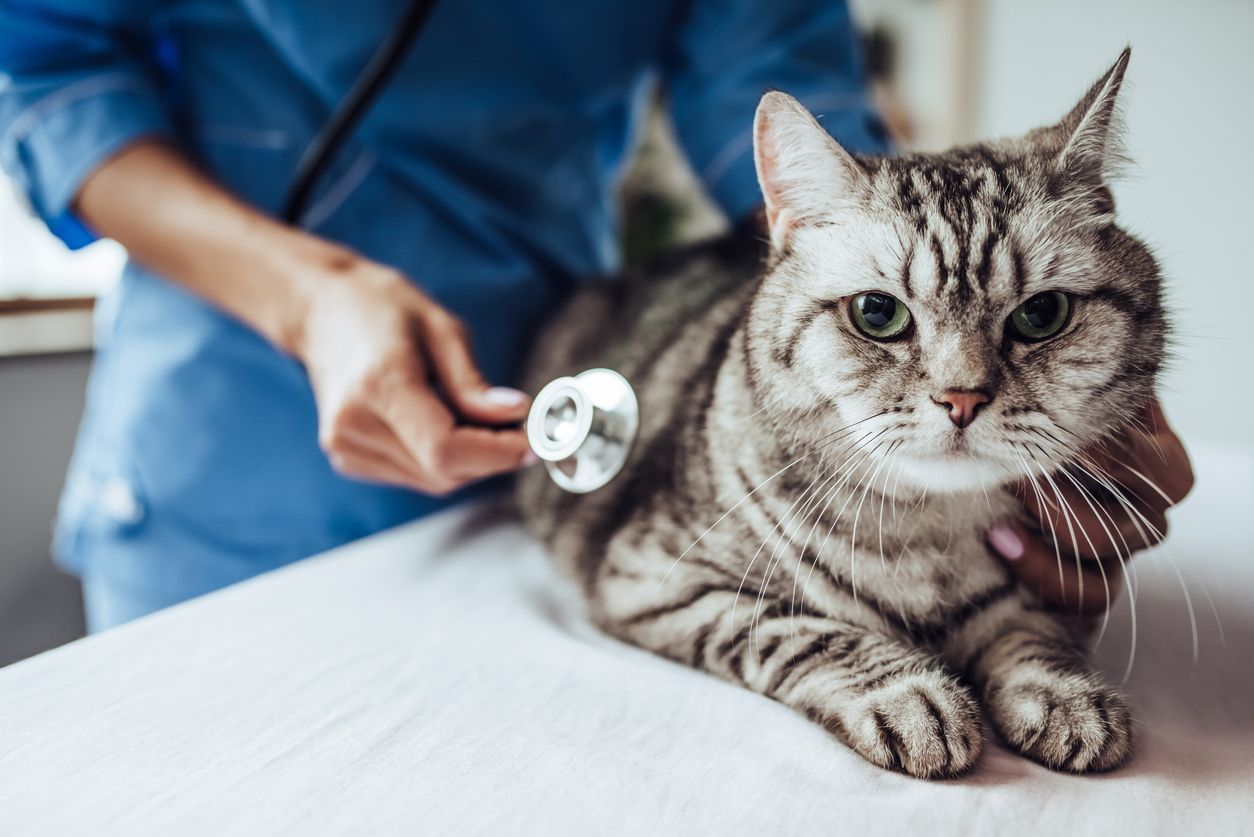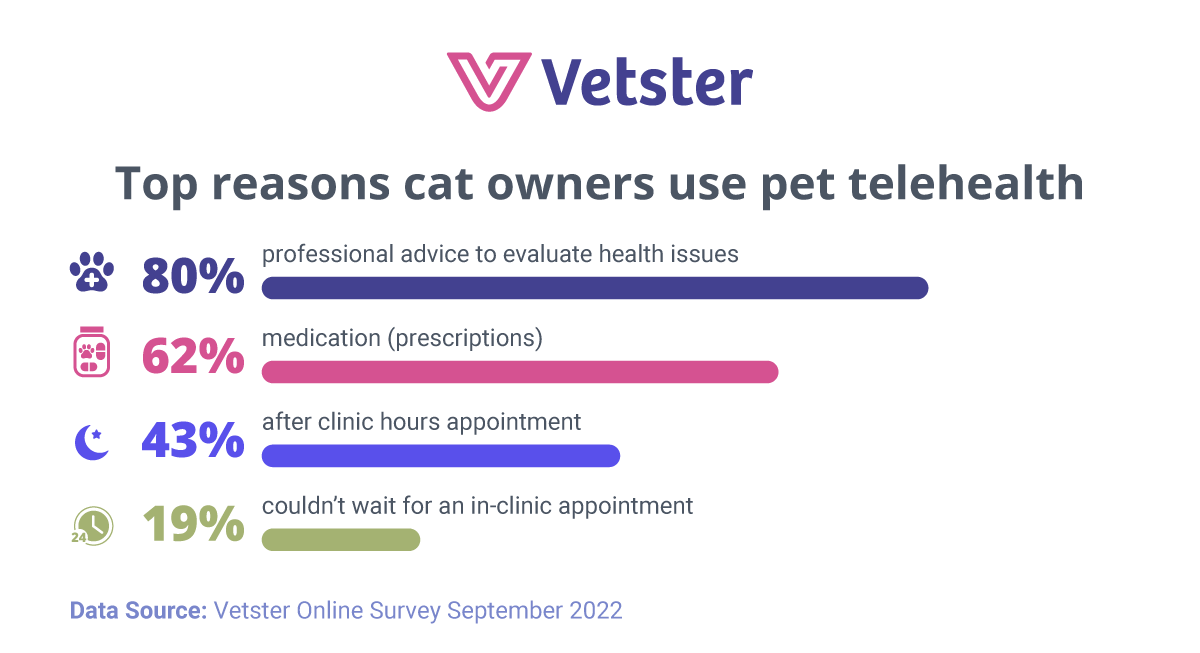How often should you schedule vet appointments for your cat?

How often you schedule vet appointments to maintain your cat’s health depends on its age, lifestyle, and overall health condition. Consult with a vet to create a schedule that’s best suited for your cat’s health care needs.
As a pet parent, your cat’s health and well-being are important. Routine health care for your cat can help detect early signs of diseases and medical conditions. With diseases like feline obesity on the rise, it is important to make sure your feline friend has adequate preventive care, including vaccines and dental care. Modern veterinary options, such as convenient virtual care appointments that can be accessed from your phone, can fill in the gaps between regular vet visits and help to identify some common diseases and conditions.
In the U.S. just over 80% of cat owners surveyed have taken their cat to an in-clinic vet appointment within the last 6 months, with an annual check-up being the main reason for a visit.
The leading reason for a telehealth appointment was to evaluate health issues at 80%, followed by medications (prescriptions such as flea and tick preventatives) at 62%.

Your kitten’s first vet appointment
From the time a kitten is 8 weeks old until they are about 6-8 months of age, you will need to book their veterinary visits at regular intervals for routine preventive health care, including their first physical examination, vaccinations, vaccine boosters, and parasite control. During the physical exam, you can discuss a recommended schedule of appointments and care for your kitten with the vet. If you’ve recently gotten a new kitten, you should take them to the vet for a checkup within the first few days, even if they already have some of their vaccines. The vet can assess their physical condition and make recommendations for scheduling their future vet appointments to help you manage their health care as they grow. The vet will also recommend a date range for scheduling their spay or neuter appointment.
Regular check-ups for your healthy adult cat (1-6 years)
Even for the most healthy adult cats one to six years of age, you should schedule at least one vet appointment per year. Getting a regular check-up is important so that the vet can monitor their growth and overall health, ensure they are up to date on their rabies vaccine and any other necessary vaccinations, along with completing any blood tests that may be required to test for feline diseases.
Virtual vet appointments are a convenient option if you need to discuss treatment schedules for flea and tick prevention and deworming. Book an online virtual care appointment to go over any questions you may have about your cat’s health or medical conditions you may be concerned about.
Vet appointments for your mature adult cat (7-10 years)
Health problems start to become more common once cats reach the mature adult stage between 7 and 10 years. Obesity and dental disease are two of the most common conditions of cats in this age bracket. Your cat also faces different health risks depending on whether they go outside or not. While annual check-ups may be enough for some cats in this age group, many more will benefit from a wellness exam every six months. By this age most cats will need professional dental care. Consult a veterinarian to learn more about what to expect and watch out for.
Geriatric care for your senior cat (10 years and up)
A senior cat is ten years old or older. Senior cats may require geriatric care and that often requires more frequent and intensive veterinary care as they get older. Older cats need more frequent check-ups because they are more susceptible to developing age-related diseases and other serious conditions, like diabetes and kidney disease. Schedule a vet appointment for your senior cat a minimum of every six months even if they are not experiencing symptoms of illness. Some common problems pet owners of senior cats face include changes in appetite, weight loss, a decrease in mobility that may be joint pain caused by arthritis, and failing litter box habits, which is a common occurrence in cats who have kidney disease.
If your cat has an ongoing or chronic illness
If your cat has a persistent or chronic illness, the frequency of vet visits will depend on the type of illness that your cat has. If your cat has an illness that is chronic and requires medication, it’s important to schedule regular appointments with a veterinarian to monitor treatment progress and adjust their medication dosage to achieve optimum health given their medical condition. Certain diseases, such as diabetes, may be increasingly managed at home with the use of apps and at-home test kits.
Health care for your cat
We all want our pets to live a long and healthy life. Regular checkups and routine exams are all part of how pet parents can best care for their cats.
- Schedule regular checkups for preventative and maintenance care based on the life stage of your cat
- Book online vet appointments to discuss questions and address health concerns early
- Consult a veterinarian regularly to manage ongoing health issues and chronic illness care
Online virtual care appointments provide you with the convenience of time scheduling outside of regular in-clinic hours along with the convenience of an at-home virtual appointment. Keeping up with vet appointments for a chronic illness is vital to your cat’s overall health and well-being. A veterinarian can recommend the best course of action to manage your cat's illness and help you with long-term care plans as a caring pet parent.










